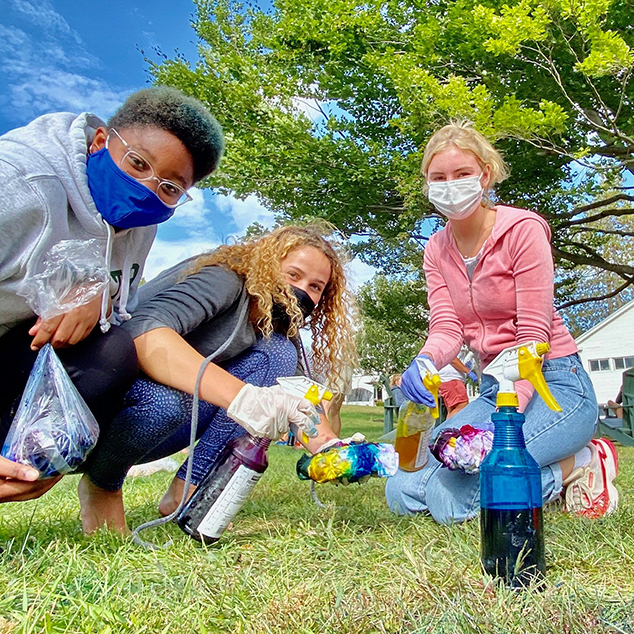
When this article goes to press, Proctor students will have been on campus for two weeks. After two rounds of PCR COVID-19 testing, all students tested negative, and campus came back to life after six months of hibernation.

For Proctor’s 365 students, including 101 day students this year, new COVID-19 protocols and safety guidelines greeted them upon their return. Mandatory face masks, outdoor classes, daily health screenings for all employees and students, directional hallways, upgrades to ventilation systems, and on-going pool testing aim to create a layered net of precautions that will hopefully keep the Proctor and local Andover communities safe this fall.
When Proctor’s Health Director, Sue Norris, received the final negative PCR test for students, we all breathed a temporary sigh of relief, and thought to ourselves, “We did it!” We initiated Phase 2 of our reopening plan that included the start of academic classes, afternoon athletics, and staggered meals in the dining hall.
While we can be proud of our accomplishment, of the collective buy-in from students, parents, faculty, and staff to adhering to safety guidelines, pre-arrival testing and quarantining practices, and an understanding of mutual accountability, we would be foolish to think we’ve walked out of the proverbial woods as our ninth graders did from an abbreviated Wilderness Orientation experience on September 13. Instead, our mindset as a school is one of continued surveillance, knowing any let-down in our adherence to safety precautions could cause problems.
Looking at the horizon that is this school year is simultaneously thrilling and exhausting. But we can learn much from our time in the woods on Orientation, from the pacing required to hike the highest peaks and traverse the most challenging stretches of wilderness. We learn that taking care of each other is paramount to our success. We learn that each step we take counts. That route and routine matters. That planning, and then following that plan, helps the group be confident in its ability to reach the destination.
We learn that holding each other accountable to best practices, to a standard of community stewardship, is each of our jobs, not just the responsibility of those “in charge.” And we learn that hard work and discipline pay off when we are able to peer out over the terrain covered, as difficult as it may be, and say to each other, “We just hiked that. Good work.”
We are not out of the woods yet. Our journey is just beginning. But there is not a group of faculty, staff, students, or parents, or a town, with whom we would rather be navigating this fall.